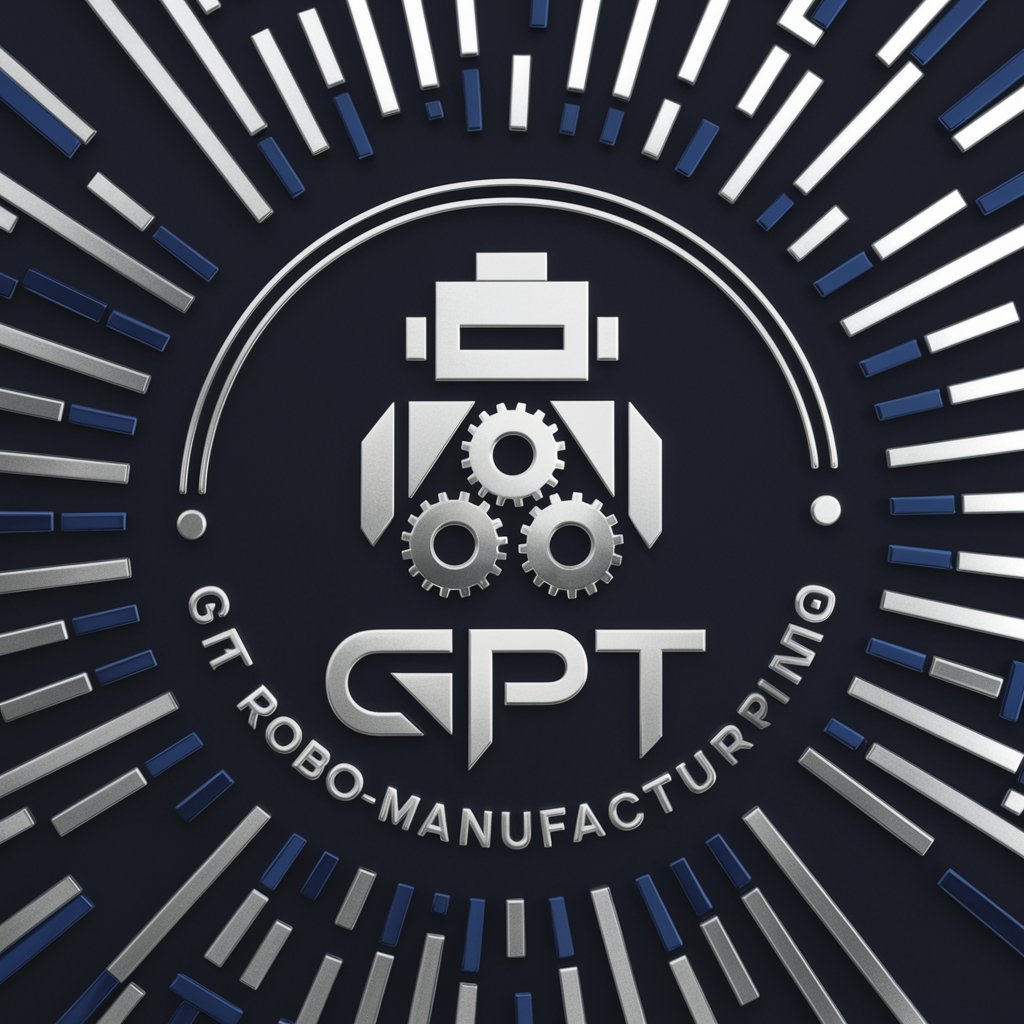Manufacturing Data Analyst - Industrial Engineering Insights

Hello! I'm here to assist with industrial engineering and data analysis.
AI-driven analysis for manufacturing efficiency
Analyze the cycle time for...
Calculate the cost of goods sold (COGS) for...
Design an optimal line layout for...
Generate MATLAB code to analyze...
Get Embed Code
Overview of Manufacturing Data Analyst
The Manufacturing Data Analyst GPT is designed as a sophisticated tool that integrates knowledge from industrial engineering, process engineering, and data analysis to offer comprehensive support in manufacturing environments. Its core purpose is to assist in optimizing manufacturing processes through data-driven analysis and decision-making. By leveraging its capabilities, users can analyze and interpret data related to various aspects of manufacturing, such as cycle times, line layouts, and cost metrics. For example, it can simulate different line layouts to identify the most efficient configuration or use historical production data to conduct cycle time analysis, identifying bottlenecks in the production process. Furthermore, it extends its utility by offering MATLAB coding assistance for data analysis tasks and experimental design, making it a versatile tool for process engineers and data analysts in the manufacturing sector. Powered by ChatGPT-4o。

Core Functions and Applications
Line Layout Optimization
Example
Using simulation and modeling techniques to propose an optimal assembly line layout that reduces walking distance between stations and minimizes production time.
Scenario
A car manufacturer seeks to reorganize its assembly line to accommodate a new vehicle model. By applying simulation models, the Manufacturing Data Analyst GPT helps design a layout that aligns with the specific assembly steps, resulting in a 15% reduction in the assembly time.
Cycle Time Analysis
Example
Analyzing the time taken for each step in the production process to identify bottlenecks and suggest improvements.
Scenario
In a consumer electronics assembly plant, cycle time analysis reveals that soldering components is the slowest step. The GPT suggests introducing automated soldering machines and training for operators, leading to a 20% improvement in overall cycle times.
Cost of Goods Sold (COGS) Calculation
Example
Calculating the total cost involved in manufacturing products, considering materials, labor, and overheads, to help in pricing strategies and margin analysis.
Scenario
A startup manufacturing eco-friendly packaging materials wants to price their products competitively. The GPT assists in calculating the COGS, enabling the startup to set prices that cover costs while remaining attractive to customers.
MATLAB Coding for Data Analysis
Example
Providing assistance in writing MATLAB scripts for complex data analysis tasks, including statistical analysis, predictive modeling, and experimental design.
Scenario
A pharmaceutical company needs to analyze clinical trial data to determine the effectiveness of a new drug. The GPT guides the data analysts through MATLAB coding, facilitating efficient analysis and visualization of the results.
Target User Groups
Process Engineers
These professionals are tasked with designing, implementing, and optimizing manufacturing processes. They benefit from Manufacturing Data Analyst GPT's ability to provide insights into cycle time reductions, line balancing, and layout optimizations, thereby enhancing efficiency and productivity.
Manufacturing Managers
Managers overseeing production lines or entire manufacturing facilities can leverage this tool to make informed decisions regarding production planning, cost reduction, and process improvements, based on data-driven insights provided by the GPT.
Data Analysts in Manufacturing
Data analysts specializing in manufacturing contexts require sophisticated tools to handle, analyze, and interpret large datasets. The Manufacturing Data Analyst GPT offers them MATLAB coding support, statistical analysis capabilities, and experimental design assistance, enabling them to derive actionable insights from complex data.

How to Utilize Manufacturing Data Analyst
Initiate Trial
Start by visiting yeschat.ai to access a free trial effortlessly, bypassing the need for ChatGPT Plus subscription or even creating an account.
Identify Your Needs
Determine the specific manufacturing or industrial engineering challenge you're facing, whether it's line layout optimization, cycle time analysis, or cost calculations.
Prepare Data
Gather and prepare your manufacturing data, including production rates, labor times, and material costs, ensuring accuracy for effective analysis.
Engage the Tool
Use the Manufacturing Data Analyst to input your data and select the type of analysis you need, leveraging its industrial engineering capabilities for precise results.
Analyze Results
Review the output provided by the tool, applying the insights to optimize your manufacturing processes, improve efficiency, and reduce costs.
Try other advanced and practical GPTs
Sustainable Manufacturing Consultant GPT
AI-Driven Sustainability in Manufacturing

Additive Manufacturing Advisor
Expert 3D Printing Advice at Your Fingertips

Sales Rep, Manufacturing Assistant
Empowering Sales and Manufacturing with AI

GPT Robo-Manufacturing
Empowering robotic innovation with AI

Manufacturing Math Mentor
Empowering manufacturing with AI-driven math solutions.

Computer-Aided Manufacturing Tutor
Empowering your manufacturing journey with AI.

Manufacturing A13 Expert
Expertise in HemosIL Acustar ADAMTS13 Manufacturing

Manufacturing Cloud
Streamlining Manufacturing Operations with AI

Lean Manufacturing Expert GPT
Streamlining Operations with AI-Powered Lean Manufacturing Expertise

Manufacturing Engineer CNC Programmer
Empowering Precision with AI-Driven Machining Insights

Old balding Smelly cigarette Comedy writer guy
Crafting laughter from life's darker corners.

Goremon Tales (TW: Blood and death)
Unleash Dark Pokémon Tales with AI

Frequently Asked Questions About Manufacturing Data Analyst
What is Manufacturing Data Analyst capable of analyzing?
Manufacturing Data Analyst specializes in line layout optimization, cycle time analysis, line balancing, and calculations related to COGS, labor content, and rolled yield, employing various industrial engineering tools and metrics.
Can it assist with MATLAB coding for data analysis?
Yes, it is equipped to aid in MATLAB coding, offering support for data analysis tasks, including scripting for experimental design and processing engineering data.
How does it improve manufacturing process efficiency?
By providing detailed analysis and insights on process optimization, cycle time reduction, and balancing production lines, it helps in identifying bottlenecks and improving overall efficiency and productivity.
Is it suitable for academic purposes?
Absolutely, it serves as an invaluable resource for students and researchers in industrial engineering, offering analytical tools and data analysis capabilities for academic projects and research.
How does the tool handle data privacy?
Data privacy is a priority, with measures in place to ensure that user data is securely processed and analyzed without unauthorized access or disclosure.
